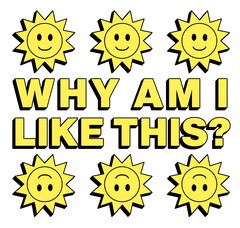In its most benign form, social media is about checking in with friends and family, looking at hot people, and keeping up with the news. But for some of us, despite logging on with innocent intentions, spending time browsing Instagram or scrolling Twitter can quickly turn into stoking flames of resentment and doling out judgment over digital bad behavior.
The celebrity posting non-stop “relatable” content from his second home in Martha’s Vineyard, the Cool Girl who’s somehow been clubbing her way through the pandemic, the most obnoxious guy from your sophomore year econ lecture who posts screenshots of his own tweets to Instagram: All of these people, and more, are prime subjects of the hate-follow, the practice of following and keeping online tabs on someone who you can’t fucking stand.
According to experts, we’re socially hardwired to look at other people’s lives, even other people we dislike. “Fundamentally, we are all hardwired to pay attention to what other people are like,” Pam Rutledge, a psychologist who founded the Media Psychology Research Center, told VICE. “Social monitoring, social comparison, whatever you want to call it, is very natural and normal.” But when a jokey obsession with someone else’s life becomes an obstacle to being happy with your own, it’s probably time to reexamine how and why you’re spending your time online like this.
You’re bored, and looking to feel something.
It might seem counterintuitive, but according to Rutledge, looking at things we know will piss us off online is a pretty normal form of staving off boredom. “Having your emotions activated in a way that you would expect that you know you're going to resolve can actually be pleasurable,” she said.
The way we spend time on social media is controllable in the way real-life social interactions aren’t. Run into an unpleasant acquaintance at a party, or get cornered by an ignorant cousin at a family gathering, and decorum dictates when and how you can pull yourself away. Online, we can indulge in feeling irritated by the people we dislike at will and end the engagement by closing the app.
Rutledge and social psychologist Erin Vogel both compared the charge from hate-following to the appeal of horror films. “Watching a scary movie can be entertaining, even though being scared is generally unpleasant,” Vogel said. “Social media allows us to watch other people's lives as if their lives were movies.”
You’re drawn in by the illusion of closeness.
One of the best things about social media is the way it allows us to feel connected to the people we care about, even if they’re physically distant from us. But according to Vogel, looking at the things that people we hate-follow post on social media can also foster a perception of closeness to them.
“Social media can make us feel like we have an actual relationship with a person we follow, even if we've never met them. It feels intimate,” Vogel told VICE. “Learning more about [people we hate-follow] can feel satisfying, if we learn more information that confirms that we're ‘right’—that we dislike them for a reason.”
But in spite of the allure of “knowing your enemy,” Vogel cautioned against treating social media like a direct window into someone else’s life, especially someone you don’t know at all, like a celebrity you hate or an influencer whose content you dissect in the group chat. “We forget that public figures are still sharing carefully curated highlights of their lives—not the full story,” she said.
You’re using them as a point of comparison—for better or worse.
Another big component of hate-following involves comparing ourselves to the people we’re gawking at. “We all make these comparisons, both online and offline,” Vogel said. “Social media makes it easy to compare ourselves to others.”
When these comparisons shake out well for us, Rutledge said they can actually add to the entertainment value of the hate-follow.
“We're very interested in people who have been very successful, because we're curious about how and why,” she said. “But we also periodically really reassure ourselves by stalking people who are worse off than we are. You use it to sort of renormalize your experience of where you are in the human continuum.”
Where these comparisons can become harmful, however, is when we begin measuring ourselves up against the perceived success of others and judge ourselves short. Stalking former romantic partners—or even the ex of a current partner—can also evoke these negative emotional reactions.
“Be very careful at the point where you start creating artificial standards, because you just made all that up,” Rutledge said. “If we're using that to judge ourselves, we're asking for trouble.”
You’re defining yourself in opposition to their “bad” behavior.
Social comparison isn’t just about what other people do, or have. It’s also about who they are—and who we want to be. By reflecting on the qualities we dislike in other people (even if, in reality, those qualities are just part of their online persona), we set standards for ourselves and live accordingly.
“Looking at people we dislike, or don't respect and trying to understand the difference helps us shore up our own identity and our own value system,” Rutledge said. “If you're looking at somebody, and you're like, I really hate this person, because this person brags about their wealth, or this person exposes themselves in a way I dislike or this person is rude, that allows you to create self-definition. You say, ‘I'm not like that. Here's where I draw the line.’”
If their posts tank your self-esteem or take up too much of your brain space, it’s time to hit the unfollow button.
“I think people need to be more appreciative of the difference between positive and negative emotions,” Rutledge said. In order to suss out how your hate-following habit makes you feel, she suggested keeping a media use journal, where you make note of when you check in with someone you hate-follow, what sparks the impulse to do so, and how you feel during and after the fact.
“As long as you're feeling good about it, then and you're getting something out of it from an entertainment point of view, then it's fine,” she said. “If you're allowing a following to diminish your moods, then I would say look, look at why and try and find a new activity that makes you feel better.”
Vogel agreed that self-inquiry, and honesty, is essential in assessing whether or not you need to cut hate-following out of your life. “Ask yourself what you gain from hate-following the person. Does it help combat your own insecurities? Does it entertain you? If your hate-following habit is bothering you, is there another way you could get those needs met?” she said. If you find the answer to these questions is that hate-following is interfering with you having fun online, there’s always the option to mute, soft-block, or simply unfollow the object of your ire.
“It may feel strange at first to not see their posts,” Vogel said. “But you might find that you enjoy your time on social media more when you're only following people who add value to your life.”
Follow Katie Way on Twitter.

